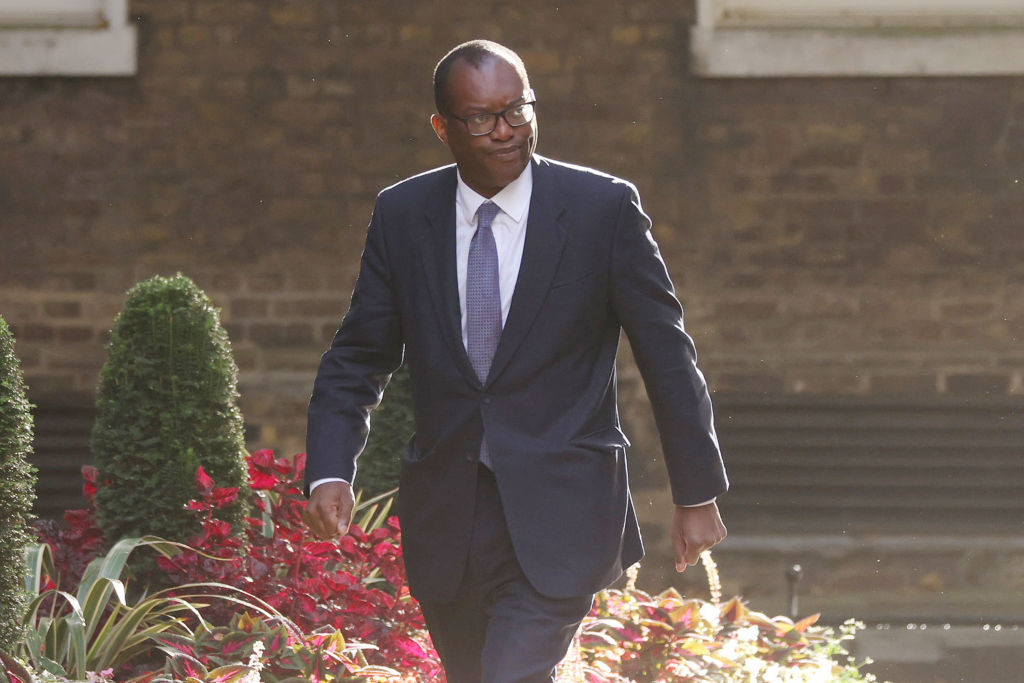With Britain’s economic warning lights flashing, we need more than just tax cuts

Kwasi Kwarteng, the new chancellor, wants an average of 2.5 per cent annual GDP growth, a level not seen on a sustained basis since the early 2000s. Besides dealing with the fallout from the cost of living crisis and rising energy bills, it is clear that the central long-term mission of the Truss administration is to restore economic growth.
So far, cutting tax is the government’s chosen remedy: halting the rise in corporation tax and reversing the “Health and Social Care Levy”, which recently raised National Insurance Contributions (NICs). There is also speculation about a possible cut to VAT and bringing forward a planned cut to the basic rate of income tax.
Tax cuts certainly have a place in an economic strategy to boost growth. But they need to be targeted and fiscally responsible. Tax cuts are also only one piece of the puzzle for unlocking economic growth. On both of these fronts, the government needs to flesh out its thinking.
First, better-designed tax cuts. Reducing the tax burden on work, which a reduction in NICs does, is a reasonable approach. Indeed, a conservative government should, on principle, actively seek to ensure the tax system rewards income from hard work, rather than income from luck. But a broad-based cut to NICs is expensive – reversing the recent increase in NICs rates would cost £13bn a year – at a time when the public finances are under almost unprecedented strain.
A more precise focus on cutting employer NICs would be less costly. It would, in the short term, reduce staffing costs for businesses, and in the long term the effects would feed through in the form of higher wages, more employment, stronger business profits, or some combination of these effects. It would have an additional bonus of reducing the glaring differences in the way the tax system treats employees and self-employed people.
Similarly, cancelling the planned rise in corporation tax is not necessarily a bad policy. But the evidence that broad cuts to the headline rate of the tax have spurred business investment over the last decade is, at best, mixed. It is trading a lot of foregone tax revenue – £17bn a year – for highly uncertain economic gains.
There are other promising targets for reforming business taxes. In particular, the UK’s system of investment allowances, which allows businesses to exclude investments from taxable profits, is notoriously weak. Before Rishi Sunak’s “super deduction” – enabling businesses to write off 130 per cent of their investments – the UK ranked 36th out of 37 OECD nations in terms of the generosity of investment allowances. The super deduction was a significant boost for businesses, but it will end in 2023.
There are numerous indicators on the UK’s economic dashboard that are currently flashing red. The labour force is shrinking: economic inactivity has grown by 246,000 over the past 12 months and has been rising steadily since the pandemic. Housing has never been less affordable. Far from “levelling up”, on most economic indicators most areas of the UK are falling further behind London. This is to say nothing of a deteriorating trade balance, vacancies left unfilled as firms face skills shortages, and real average wages which will take a significant hit this year after 15 years of stagnation.
Against these headwinds, tax cuts may be necessary but they will almost certainly not be sufficient. There are already some good policy ideas from the last parliament waiting on the shelf. For example, the lifelong loan entitlement, which will provide individuals with a loan entitlement to the equivalent of four years of post-18 education to use over their lifetime, has a lot of potential to upgrade skills in a way that gives individuals maximum flexibility and choice. But the details still need finalising.
Ultimately, if the aim is to boost productivity and rebalance the UK’s prosperity, then we need to turn around the fundamentals of the economy. If we want to have bustling economic hubs outside of London, then we need more ambitious projects. We should also have a rethink about regulation, and how it can be changed to deliver smoother supply chains and unlock new pools of capital for investment.
Government will, inevitably, have a role to play in all of this. This is not incompatible with a philosophy of putting money back in people’s pockets and prioritising individual choice. But if Kwarteng is serious about his 2.5 per cent target, the state needs to adapt, not just shrink.
